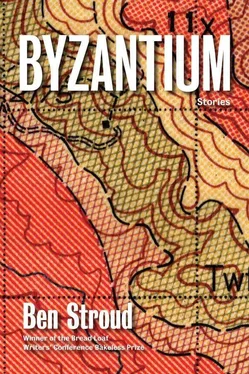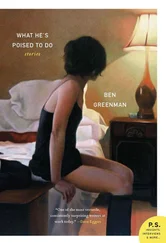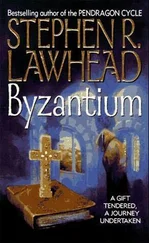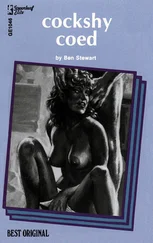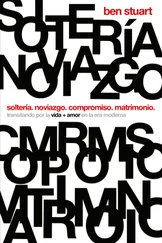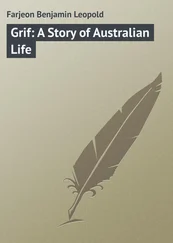AMY AND I BEGAN MEETING on Mondays and Fridays. I taught the other days of the week at the university in Mainz, and the weekends, I told her, I needed for grading, though in fact I simply wanted to keep them to myself. Sometimes we took trips: In Bad Homburg we strolled through the Kurpark with its Thai temples and miniature Russian church, then toured the kaiser’s summer palace where the guide showed us first the kaiser’s telephone cabinet, with its private line to Berlin, then the kaiser’s flush toilet, with its view over the palace roof. In Höchst we wandered into the toll castle’s moat, a green, ivy-strewn park abandoned that day under a gray sky, and in Rüdesheim we sat on a rock in a muddy, bare vineyard, getting drunk on grape brandy while we watched the Rhine flow by, its long, thin cargo barges easing their way to Rotterdam. On our trips I found it difficult to contain myself. In the vineyard I brought her head to my lap and unzipped my jeans as hikers passed a hundred feet above us, and in the Höchst moat I’d leaned her into a corner and slipped my fingers inside her waistband before a man overhead whistled, his head poking out from the castle’s high tower, which cost a euro to climb.
The days we didn’t take trips we spent in my apartment, and the days we did take trips we always ended there. As soon as we closed the door we’d shed our clothes and scurry to bed, me getting up and dressing only to fetch our dinner from the dimly lit takeaway — Indian food, pizza, schnitzels — four doors down. We never talked of our lives beyond the age of nineteen, only of prom, football games, and the bored, unending nights spent driving the Longview loop. One afternoon she went through the catalog of girls we’d known, asking which ones I’d had crushes on, and giggled anytime I said yes and for at least two declared, “Skank!” Another time I brought up our date.
She blushed. “I was wondering when you’d ask about that.”
“So you do remember?”
She looked at me. “What about you? What do you remember?”
“You barely spoke to me. I took you to the Jalapeño Tree and we ate fajitas, then I asked you what you wanted to do and somehow we ended up at a soccer game. We sat in my car and all I wanted to do the whole time was feel you up, but I could tell you just wanted to go home.”
“I was horrible!” she said. “I was really into you when you asked me out, but by the end of the week I wasn’t. I was like that all sophomore year.” Then she kicked back the sheets and sat atop me, leaning down so that her breasts pressed against my chest. “Have I made up for it now?”
I admitted she had.
SINCE ARRIVING IN WIESBADEN, I’d been trying, off and on, to find out where Dostoevsky had lived during his time in the city. I’d had no luck (even Google had turned up nothing) until early in November I spent an afternoon hiking on the Neroberg. At the Russian cemetery I happened upon a faded display, in Russian and German, recording the history of Russian notables in the area, and next to Dostoevsky’s name I saw Hotel Viktoria.
I was going to wait until Saturday to look for the hotel, but Amy said she wanted to come with me. As we were walking together down Wilhelmstrasse, the street where most of the old spa hotels had stood, she asked me why I wanted to find where Dostoevsky stayed. The truth was I hadn’t read him since college. But he’d lived in Wiesbaden, and now I did: there was hope in the parallel, depth I could glom on to. If nothing else, the search for his hotel would be a good detail to drop over drinks in Ann Arbor. Before I could make up some different, better answer, though, Amy took my hand in hers and swung it a little and said, “If you wrote something, what would you write about me?”
I thought for a moment. We passed the Meissen shop, its porcelain goat staring mutely through the window, and then I said, “That you had nice thighs and you helped me through a bad time.”
The question had been asked in a jokey tone, and I had answered in a jokey tone, but at my reply she grew quiet.
After we walked another block she slipped her hand from mine.
“I’m sorry,” I said. “I’m not sure what you wanted me to say.”
“Nothing,” she said. “I was just being stupid.” When I glanced at her she smiled. I was practiced at detecting false smiles, but I was practiced at ignoring them, too.
I’d asked about the old Hotel Viktoria in the tourist office, and the woman behind the counter had first consulted a book and then made a phone call before telling me that it stood on the northeast corner of Wilhelmstrasse and Rheinstrasse. We arrived there and I stopped and looked up. The Viktoria was dressed in red stone and had curving, wrought-iron balconies. It wasn’t a hotel anymore but offices, its bottom floors given over to an interior design firm and a shop selling ballet clothes. In the summer of 1865 Dostoevsky had holed up here and feverishly churned out his first draft of Crime and Punishment. Judging by the names on the plate next to the main door, his room belonged now to either a notary or a foot doctor. I’d expected to feel something, for inspiration to zap out from the stones and grip me, but it was just a building.
Later, as we lay in bed, bellies full of chicken korma from down the street, Amy’s head resting on my chest, she said, “I like you.”
Since our conversation on Wilhelmstrasse, things had been unsettled between us. “I like being with you, okay?”
“Okay,” I said. “I like being with you, too.”
A FEW DAYS LATER, Clara called. It was a Thursday and I’d spent the day teaching and had had to keep reminding myself that it was actually Thanksgiving. Clara and I hadn’t talked in two months, and after she wished me Happy Thanksgiving we didn’t say much else until she asked, “Are you flying home for Christmas?”
“I’m not sure,” I said.
“Do you want to fly back?”
I didn’t say anything.
“I need to know what to tell my parents.”
“I know,” I said.
“Well, what should I tell them?”
There was the slightest quaver in her voice. I couldn’t hear the murmur of family behind her. She must have been up in her room, sitting on her bed, the door shut. In my mind I saw her there, the lights turned off and light coming in from the street, her face pointed toward the stable of horse figurines from her girlhood. Through the deadness of my heart I felt a throb.
“Well?” she said again.
I told her, “I’m not sure,” and she hung up.
THE PHONE CALL was still troubling me when, a day later, Amy and I were sitting in bed. It was rainy and cold and we’d stayed in. Pulling closer to me, Amy told me that she and Macy were going to Rothenburg with Beth and her husband next week and she wanted me to come with them.
“Seriously?” I said.
“It’ll be fun.”
I tried to picture the five of us on a jaunt together. I couldn’t.
“No, I don’t think so,” I said, and added something about grading.
She put a leg on top of mine, rested her chin on my chest, and looked at me. She was smiling, but I didn’t know how long I had.
“Fine,” I said. “Okay. Yes.”
THE FOLLOWING FRIDAY, the day set for the trip, a beat-up red Opel honked for me at nine. Amy introduced me to Beth and then Wesley, whom I gave a shy glance. His face was red and pitted and his upper lip bore a sparse brown mustache. We’d been at war for eight years and I hadn’t yet talked to a soldier. I was assigned the passenger seat, and Amy and Beth sat together in the back, Macy buckled into her car seat directly behind me.
As Wesley guided us out of town he didn’t speak, but once we were on the highway he started talking. He drifted from the trips he and Beth had taken to Cologne and Neuschwanstein to karaoke at the Irish Pub to run-ins between his fellow soldiers and the polizei — one soldier caught flying up the autobahn, drunk, throwing beer bottles at the cars coming the other direction, another found passed out in his car, four in the morning, beneath a traffic light deep in the Wiesbaden suburbs. “Don’t fuck with the polizei,” he warned me. “They’ll fine your ass.” I waited for an opportune moment to mention my father’s combat in Vietnam. Those rare times I felt guilt over not going to war in this our decade of troubles, he was my excuse. He did that, so I didn’t have to — he’d actually said that to me once. But Wesley didn’t bring up Iraq or Afghanistan, though Amy told me he’d been to both, and at the end of each of his stories I simply smiled and laughed politely.
Читать дальше
